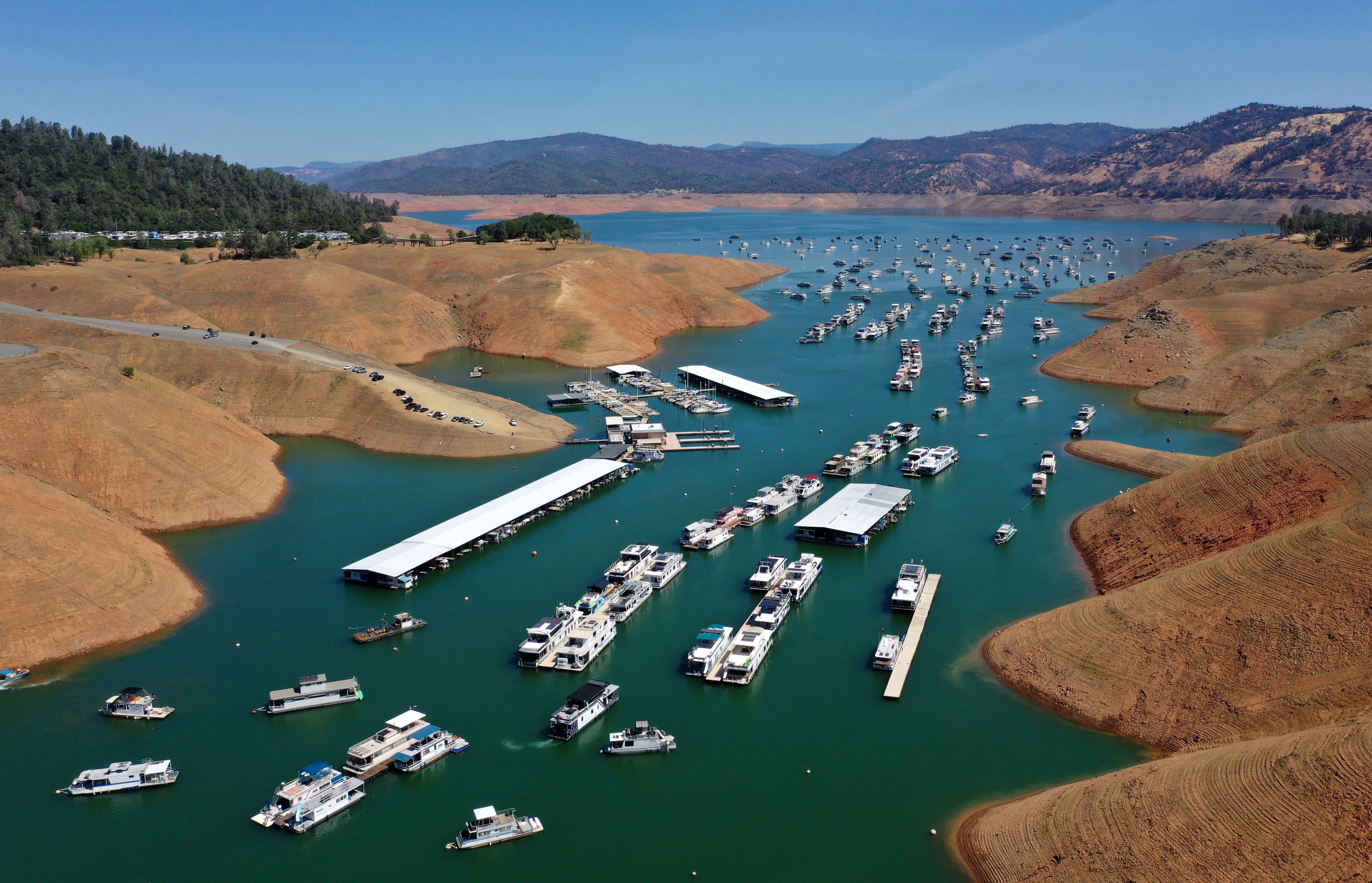Shocking photos show impact of California drought
‘It makes me feel like our planet is literally drying up’

A severe drought sweeping California is ravaging the state’s reservoirs, causing innumerable issues for the state’s residents and local governments, with state officials predicting some water levels, could reach record lows.
While the golden state is accustomed to a dry climate, this year’s drought is much hotter and drier than others, evaporating water more quickly.
Following record temperatures over Memorial Day weekend, photographs showed lakes dropped below their usual waterline, with blackened trees lining waterside banks.
“It makes me feel like our planet is literally drying up,” 63-year-old walker Lisa Larson said. “It makes me feel a little unsettled because the drier it gets, the more fires we are going to have.”
According to ABC News cities in Northern California smashed records on Monday with Sacramento reaching 104 degrees while Redding reached 109.
For the rest of the week, the National Weather Service (NWS) warned of “dangerously hot conditions with high temperatures of 101 to 107 degrees” in regional areas of the state.
According to Jay Lund, co-director of the Center for Watershed Sciences at the University of California-Davis, the state’s more than 1,500 reservoirs are 50 per cent lower than they should be this time of year.
“In the previous drought, it took (the reservoirs) three years to get this low as they are in the second year of this drought,” Mr Lund said.

At a reservoir along the Russian River in Northern California, Lake Mendocino, the water level is so low that state officials last week reduced the amount of water heading to 930 farmers, businesses, and other junior water-rights holders.
“Unless we immediately reduce diversions, there is a real risk of Lake Mendocino emptying by the end of this year,” said Erik Ekdahl, deputy director for the State Water Board’s Division of Water Rights.

Lake Oroville, a linchpin in a system of aqueducts and reservoirs that helps water a quarter of the nation’s crops, is also shrinking with surprising speed amid the drought.
The state’s reservoirs act as a savings account, storing water in the wet years to help the state survive during the dry ones.

The drought impacts a number of areas for local communities from farming to tourism. Perhaps most significantly, the water runs the hydroelectric power plants that supply much of the state’s energy.
Low water levels across California will severely limit how much power the state can generate from hydroelectric power plants.

Last summer the state ran out of energy during an extreme heatwave that prompted California’s first rotating blackouts in 20 years. However, officials have insisted they are more prepared this time around.
State officials have obtained an additional 3,500 megawatts of capacity ahead of the scorching summer months.
Reporting by the Associated Press
Join our commenting forum
Join thought-provoking conversations, follow other Independent readers and see their replies
Comments
Bookmark popover
Removed from bookmarks